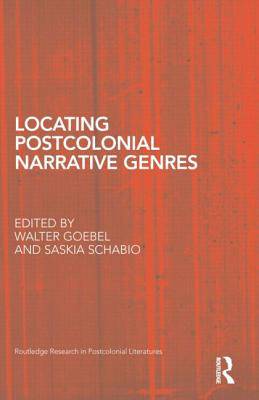
- Retrait gratuit dans votre magasin Club
- 7.000.000 titres dans notre catalogue
- Payer en toute sécurité
- Toujours un magasin près de chez vous
- Retrait gratuit dans votre magasin Club
- 7.000.0000 titres dans notre catalogue
- Payer en toute sécurité
- Toujours un magasin près de chez vous
Locating Postcolonial Narrative Genres
Description
This volume explores how postcolonial texts have determined the evolution or emergence of specific formal innovations in narrative genres. While the prominence of questions of cultural identity in postcolonial studies has prevented due attention to concerns of literary form and aesthetics, this book gives premium to the literary, aiming to delineate the evolution of specific narrative techniques as part of an emerging postcolonial aesthetics. Essays delineate elements of an emergent postcolonial narratology across a variety of seminal generic forms, such as the epic, the novel, the short story, the autobiography, and the folk tale, focusing on genre as a powerful tool for the historicizing of literature and orature within cultural discourses. Investigating the heuristic value of concepts such as mimicry, writing back, translation, negotiation, or subversion, the book considers the value of explanatory paradigms for postcolonial generic models. It also explores the status of postcolonial comparative aesthetics versus globalization studies and liberal concepts of the transnational, taking issue with the prominence of Western concepts of identity in discussions of postcolonial literature and the favoring of mimetic forms. This volume offers a unique contribution to the study of narrative genre in postcolonial literatures and provides valuable insight into the field of postcolonial studies on the whole.
Spécifications
Parties prenantes
- Editeur:
Contenu
- Nombre de pages :
- 242
- Langue:
- Anglais
- Collection :
Caractéristiques
- EAN:
- 9780415539609
- Date de parution :
- 13-11-12
- Format:
- Livre relié
- Format numérique:
- Genaaid
- Dimensions :
- 155 mm x 229 mm
- Poids :
- 458 g

Les avis
Nous publions uniquement les avis qui respectent les conditions requises. Consultez nos conditions pour les avis.





